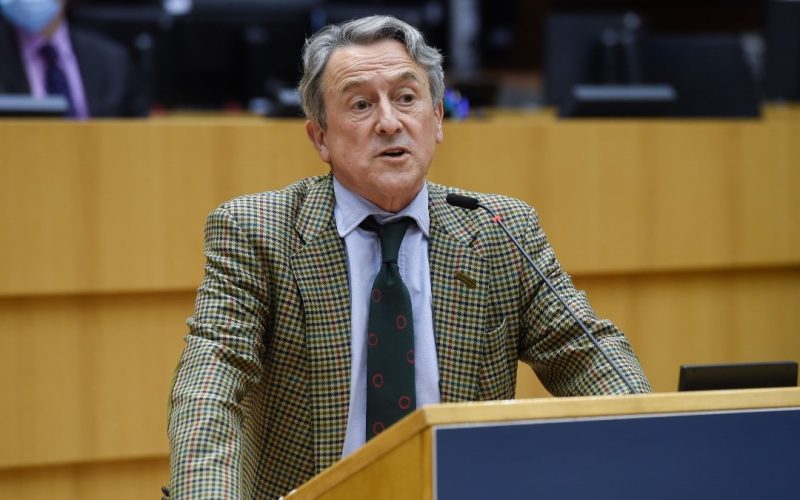The political landscape in Honduras is currently experiencing a period of heightened tension, stemming from remarks made by MEP Herman Tertsch. He asserted that President Xiomara Castro and the governing party’s candidate, Rixi Moncada, are “in a state of panic” due to the anticipated electoral loss.
According to Tertsch, this situation reflects a state of alarm among the upper echelons of the LIBRE party, which is facing growing rejection by the public. Tertsch pointed out that the panic among the ruling party’s leaders is manifesting itself in authoritarian maneuvers and actions aimed at preserving political control in the face of weakening popular support.
These statements have had an impact both in the international media and among opposition sectors, who interpret the message as confirmation of widespread discontent with the ruling party.
Effect on organizations
According to the MEP’s statements, the perception of risk in the face of defeat has led the LIBRE leadership to make decisions that could affect institutional stability. Tertsch warns that this climate of uncertainty translates into pressure on democratic institutions and possible attempts at electoral manipulation, which increases tension in the country’s political system.
Analysts and observers point out that the ruling party’s reaction not only conditions the internal dynamics of the party, but also has an impact on governance and the ability of institutions to operate autonomously and transparently during the electoral period.
Sociopolitical consequences
Tertsch’s statements have sparked immediate debate in Honduras, where sectors of civil society and the opposition are demanding oversight of the actions of the government and the LIBRE party. The warning about the state of panic of Castro and Moncada highlights the political polarization and concern about citizen participation in the electoral process.
In a societal context, this situation fosters a sense of unpredictability among citizens, who witness how political friction can undermine national stability and faith in democratic processes. The inclusion of international declarations introduces a layer of exposure that amplifies the debate surrounding governmental actions and LIBRE’s campaign approach.
Opportunities and obstacles
The scenario outlined by Tertsch shows that the LIBRE party is facing a critical moment, characterized by the need to balance the management of power with electoral legitimacy. The situation reflects a central challenge: maintaining institutional stability while managing a context of electoral rejection and citizen pressure.
The interaction between the party leadership, institutions, and citizens creates a scenario in which political decisions will have a direct impact on confidence in democratic processes and the perception of governance in Honduras. The coming weeks will be decisive in observing how LIBRE manages the tension between the urgency of retaining power and the obligation to respect institutional frameworks.




